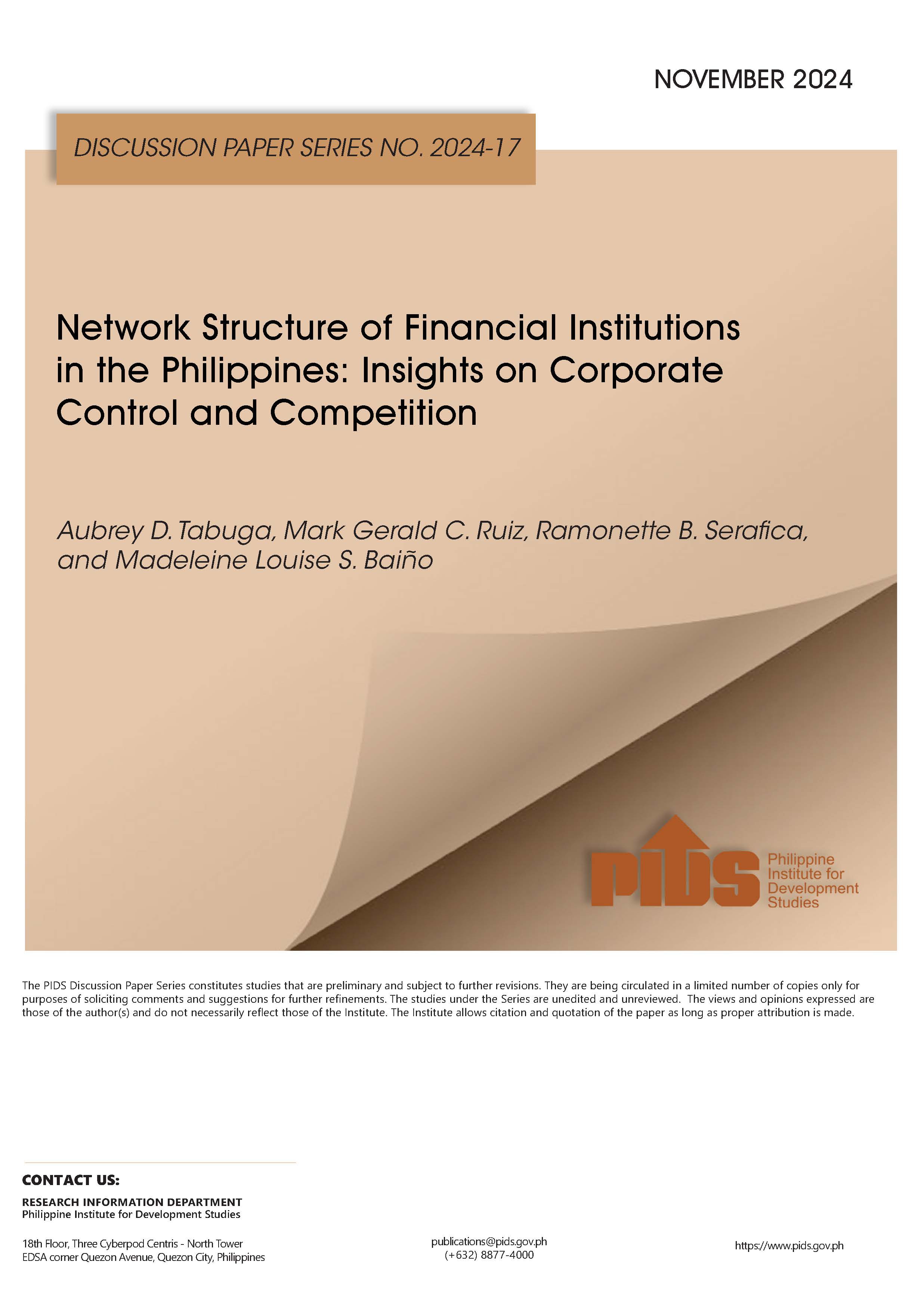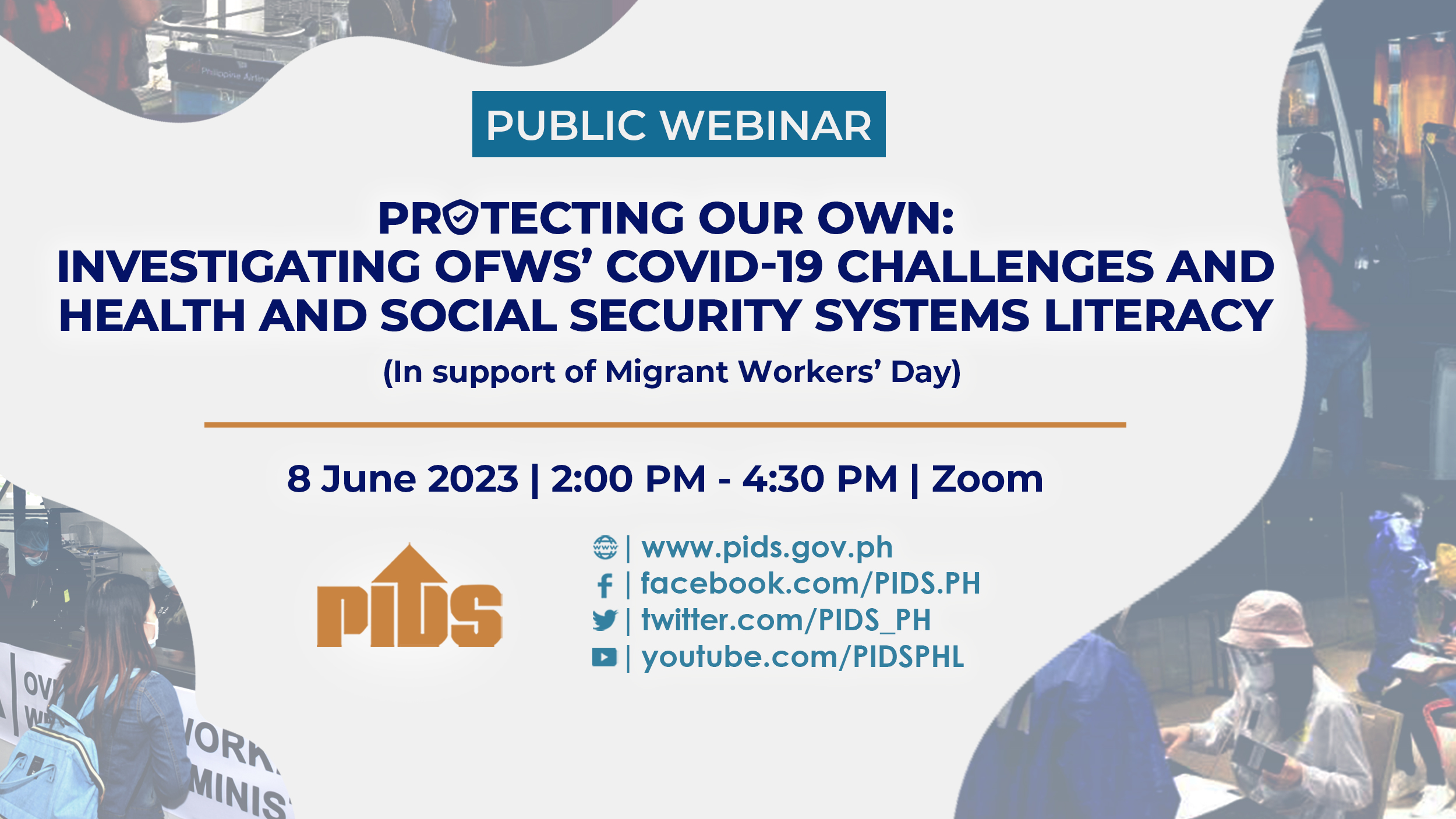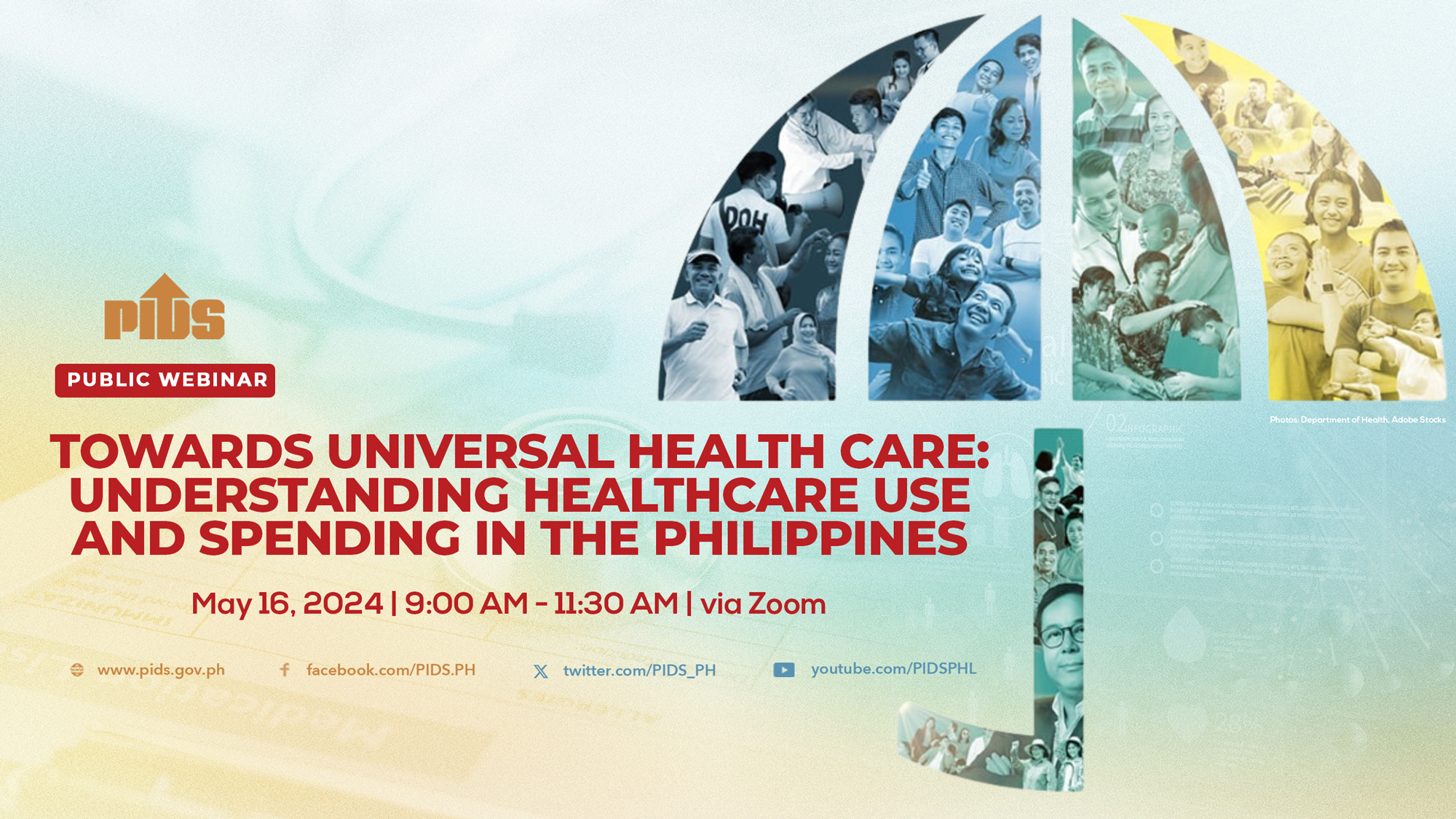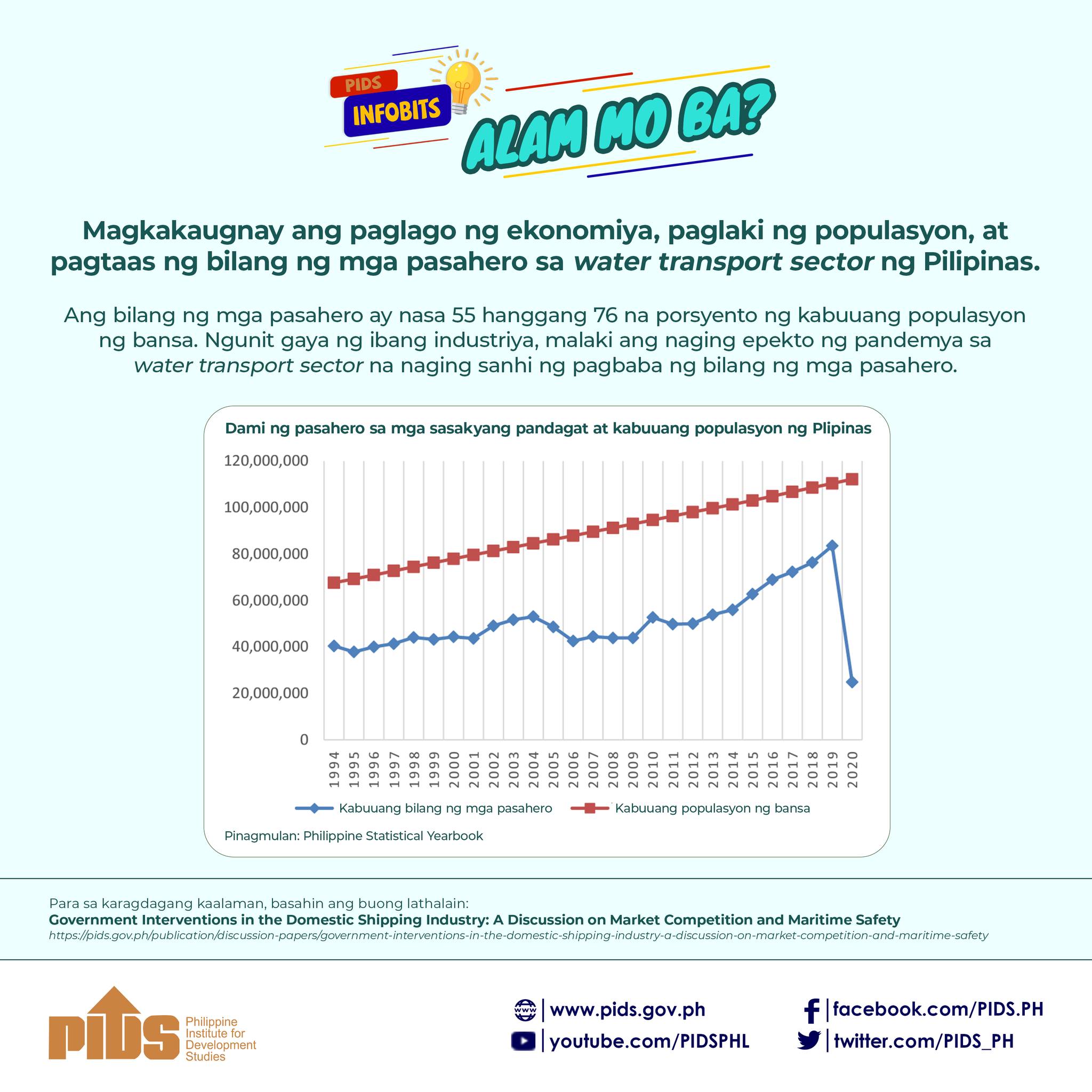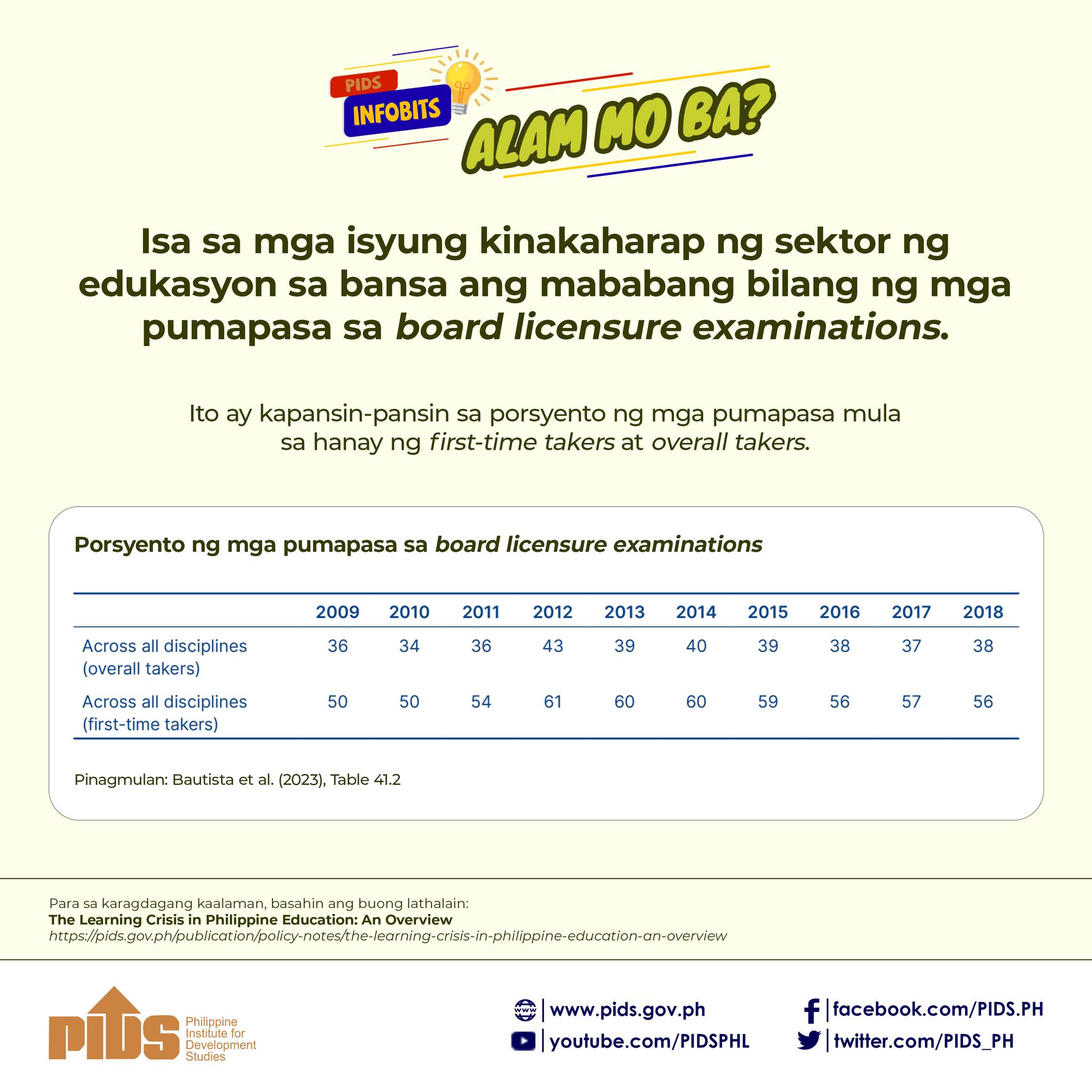GOVERNMENT think tank Philippine Institute for Development Studies (PIDS) has underscored the need for innovative health-care practices to address the "very large disparities in health.”
PIDS President Gilberto Llanto said that it is necesssary for the country to deal with the very large underinvestment in health, citing situations where government health staff stagnated at around 36,000 since year 2000 despite the country’s 1.7 million annual population growth.
"We need to innovate to achieve the Millennium Development Goals for health,” Oscar Picazo, PIDS senior research consultant and board chairman of the Philippine NGO Support Program Inc. said.
"The Health Market Innovations project builds linkages among health innovators, funders and policy-makers. It also provides information for those who do not know that there are funders for better health-care delivery,” he said.
PIDS pitched the call for innovative health practices as health stakeholders gathered at Xavier University in Cagayan de Oro City to discuss some best health-care innovation practices in a forum organized by PIDS last week.
The forum aims to encourage adoption of these practices and address persistent disparities in health amid a growing economy.
Four innovative health programs were presented in a roundtable discussion led by the PIDS, the government policy think tank tapped by the Washington-based Center for Health Market Innovations for the implementation of the project "Health Market Innovations.”
More than 100 participants from local governments, academic institutions, health offices, regional offices of the Philippine Health Insurance Corp., Center for Development offices of the Department of Health, and non-governmental organizations participated in the roundtable discussion on March 6.
One of the health innovations introduced was the Eastern Visayas Area Cooperation in Health (EVAcoh) Project.
"The project aims to setup and operate social- health enterprises using cooperatives’ community-development funds,” Roberto Nebrida, executive director of the Philippine NGO Support Program Inc., said.
The EVAcoh Project considers social-health enterprises such as cooperative-based pharmacies as an innovative method of investment in the provision of health services and commodities.
"EVAcoh social-health enterprises have served a total of 10,348 women of reproductive age,” Nebrida said.
"Its total sales have reached a whopping P6.1 million,” he said.
Another innovation, RTI International’s Wireless Access for Health (WAH) Project, recognizes the benefits of wireless connectivity in enhancing health-care planning and delivery in rural health units (RHUs).
"The WAH Project uses 3G wireless technology to improve health care by reducing time required for data reporting, as well as improving access to accurate patient information at the RHU level,” Felipe Canlas, RTI International local project coordinator, said for his part.
"It helps rural clinicians spend more time for patient care rather than spending half of their time on patient information recording and reporting,” he explained.
WAH has been adopted in 66 RHUs in 38 cities and municipalities and 14 provinces in the country, serving 2,500 patients a day.
Sis. Eloisa David, OSB, chief operating officer of KaKaK Foundation, talked about the Mother Bles Birthing Clinics. The project, which has established 50 clinics since 2010, addresses the lack of access to affordable and high-quality maternity-care facilities, helping achieve the country’s MDG commitment of reducing maternal mortality.
The program promotes the legitimate rights of every mother on maternal health, especially those who are indigent and underprivileged, David, a physician and fellow of the Philippine College of Hospital Administrators, said.
In post-disaster situations, Xavier University’s Sustainable Sanitation (SuSan) Center provides effective and sustainable sanitation solutions to evacuation centers through the distribution of urine diverting dehydration toilets (UDDTs). Moreover, the collected bio-waste from UDDTs can be recycled and used as soil amendments.
"Every time there is a disaster, people donate clothes, food, soaps and water, while donating sanitary toilets is always an afterthought,” said Gina Itchon, SuSan Center director. "There was once a big evacuation center where 50,000 people were sharing a single toilet.”
At evacuation centers in disaster-hit Northern Cebu and in Tacloban City, the SuSan Center had installed Arborloo toilets, or shallow pits that are abandoned once filled, which can then be planted with fruit or wood-bearing tree saplings.
Fr. Roberto Yap SJ, Xavier University president, said investments in human capital, education and health are important to make economic growth inclusive. "Health disparities in the country tell us that the traditional way of health care is not enough, and health innovations must be explored,” Yap said.
Celia Reyes, PIDS senior research fellow and health project director, said PIDS’s role is to help in knowledge- brokering for a more inclusive health-care system.
"PIDS is not only interested to showcase best practices on health innovations,” Reyes said. "The institute is willing to help you to link with innovators and with other stakeholders to scale up these health innovations,” she told forum participants.//
PIDS cites need for innovative practices amid underinvestment in health sector



